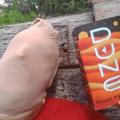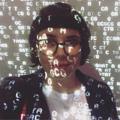An exceptionally difficult book to rate and review; so much so, I've left it a month before making any comment. I'm not normally much for historical realism in my fiction, but the first story in this often bizarre collection, Prussian Blue, pulled me in hard, and I had to devour it in one satisfying gulp.
Labatut takes historical figures (chiefly from the sciences, with physicists and mathematicians at the forefront), and twists them into often grotesque tales, peppered with fiction and his own invention. The whole book has an addictive and propulsive quality (hence my need to fire through the first story in one sitting), reeling from event to event without hardly catching a breath. Where and with whom one story starts, is in no way guaranteed to end in the same place and with the same person; in a way history itself is the main character here. As Labatut weaves and wends his way through events at breakneck pace, only the timeline seems to matter, with the events strung along it. The stories bear little connection with each other as regards the characters and events, but the themes echo across all.
Personally, I loved it, but I can see how and why many other readers might not. Those expecting a truly historical account of these figures may be aghast at the liberties taken; the converse may be true of those expecting wholly literary fiction. Although Labatut points out in his acknowledgements some of the fictional elaborations he makes, it is mostly unknown (to the layman, of course) exactly what is fiction and what is fact. But herein, I feel, lies the true beauty of the book, where the medium becomes the message (or massage, McLuhan fans); it is the very act of unknowing that Labatut is extolling. No matter how deeply we dig, literally into the earth, via microscope into the quantum world, or backwards through the annals of history, we ultimately are left none the wiser. Is this such a bad thing? The cloud of unknowing is a beautiful thing; the pursuit of knowledge itself, the path, is the goal, just as the medium can hold the message.
I feel like Labatut's main intention is laid bare and made (perhaps a little too) explicit in the final story (The Night Gardener), which I will quote directly from to end this review:
We can pull atoms apart, peer back at the first light and predict the end of the universe with just a handful of equations, squiggly lines and arcane symbols that normal people cannot fathom, even though they hold sway over their lives. But it’s not just regular folks; even scientists no longer comprehend the world.
Take quantum mechanics, the crown jewel of our species, the most accurate, far-ranging and beautiful of all our physical theories. It lies behind the supremacy of our smartphones, behind the Internet, behind the coming promise of godlike computing power....The mind cannot come to grips with its paradoxes and contradictions. It’s as if the theory had fallen to earth from another planet, and we simply scamper around it like apes, toying and playing with it, but with no true understanding.









